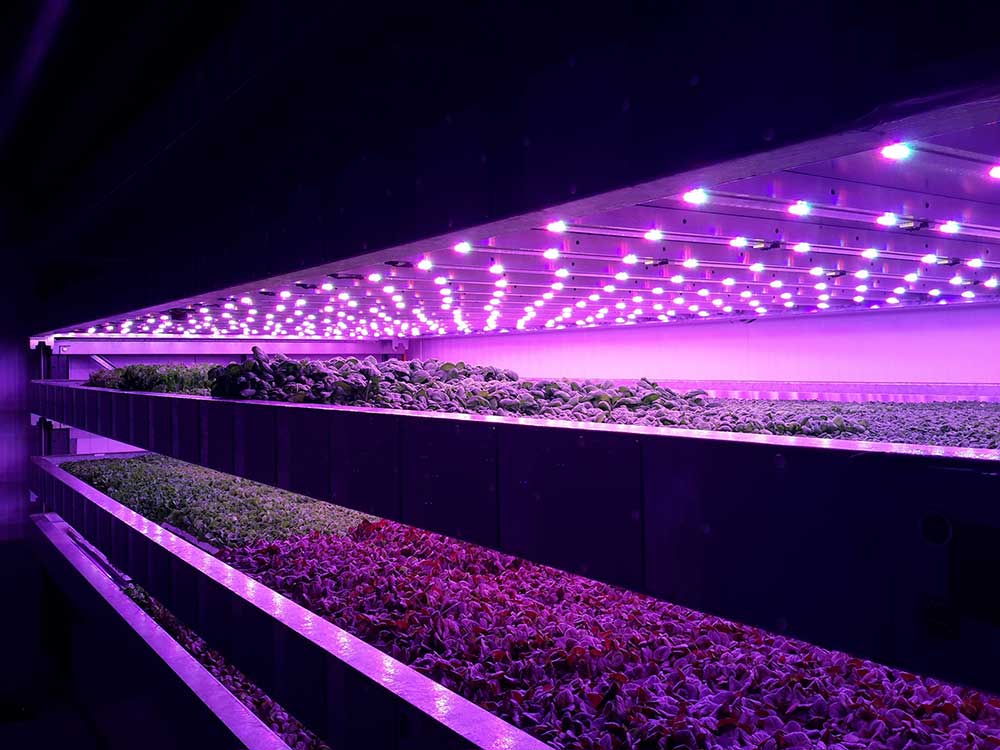
An indoor vertical farm in Scotland will be completed in the next few months, the company behind the project has said.
Intelligent Growth Solutions (IGS), the Dundee-based company, says it will make vertical farming - the process of producing food on vertically stacked layers indoors - commercially viable through reduced power and labour costs.
The modern ideas of vertical farming use indoor farming techniques and controlled-environment agriculture (CEA) technology, where all environmental factors can be controlled.
These facilities utilise artificial control of light and environmental control, such as humidity, temperature and gases.
"Vertical farming allows us to provide the exact environmental conditions necessary for optimal plant growth," said Harry Aykroyd, the CEO of IGS.
"By adopting the principles of Total Controlled Environment Agriculture (TCEA), a system in which all aspects of the growing environment can be controlled, it is possible to eliminate variations in the growing environment, enabling the grower to produce consistent, high quality crops with minimal wastage, in any location, all year round."
'Most advanced technology'
Omron, an automation company collaborating in the project, said it uses the most advanced technology to solve humanitarian needs.
Their Field Sales Engineer Kassim Okera said: "Omron's unique integrated product offering and Sysmac platform combined with extensive market experience, underpin the most innovative vertical farm in the UK which has the potential to be the first vertical farm in the world that is economically viable."
Professor Colin Campbell, Chief Executive of the James Hutton Institute commented: "We are delighted to see how well the work on IGS' indoors growth facility at our Dundee site is progressing.
"This initiative combines our world-leading knowledge of plant science at the James Hutton Institute and IGS’ entrepreneurship to develop efficient ways of growing plants on a small footprint with low energy and water input."
Singapore is also considering a huge vertical farm. The city is planning a 250-acre agricultural district, which will function as a space to work, live, shop, and farm food.
